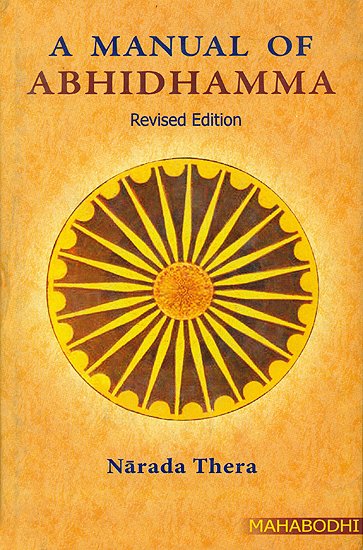A Manual of Abhidhamma
by Nārada Thera | 80,494 words | ISBN-13: 9789380336510
In the Abhidhammattha Sangaha there is a brief exposition of the Law of Dependent Origination, followed by a descriptive account of the Causal Relations that finds no parallel in any other philosophy. Edited in the original Pali Text with English Translation and Explanatory Notes by Narada Maha Thera....
§ 3.
Caritāsu pana dasa asubhā kāyagatāsati sankhātā kotthāsabhāvanā ca rāgacaritassa sappāyā.
Catasso appamaññāyo nīlādīni ca cattāri kasināni dosacaritassa.
ānāpānam mohacaritassa vitakkacaritassa ca.
Buddhānussati ādayo cha saddhācaritassa.
Maranopasamasaññāvavatthānāni buddhicaritassa.
Sesāni pana sabbāni pi kammatthānāni sabbesam pi sappāyani.
Tattha' pi kasinesu puthulam rnohacaritassa, khuddakam vittakkacaritassa ca.
Ayam'ettha sappāyabhedo.
(translation)
§ 3.
With respect to temperaments the ten 'Impurities' and 'Mindfulness regarding the body', such as the 32 parts, are suitable for those of a lustful temperament (16).
The four 'Illimitables' and the four colored kasinas are suitable for those of a hateful temperament (17).
The reflection on 'Breathing' is suitable for those of an unintelligent and discursive temperament.
The six Reflections on the Buddha and so forth are suitable for those of a devout temperament; Reflection on 'Death', 'Peace', 'Perception', and 'Analysis', for those of an intellectual temperament, and all the remaining subjects of mental culture, for all.
Of the kasinas a wide one is suitable for the unintelligent, and a small one for the discursive.
Herein this is the section on suitability.
Notes:
16. Because they tend to create a disgust for the body which fascinates the senses.
17. Because the objects are deep and vast.
